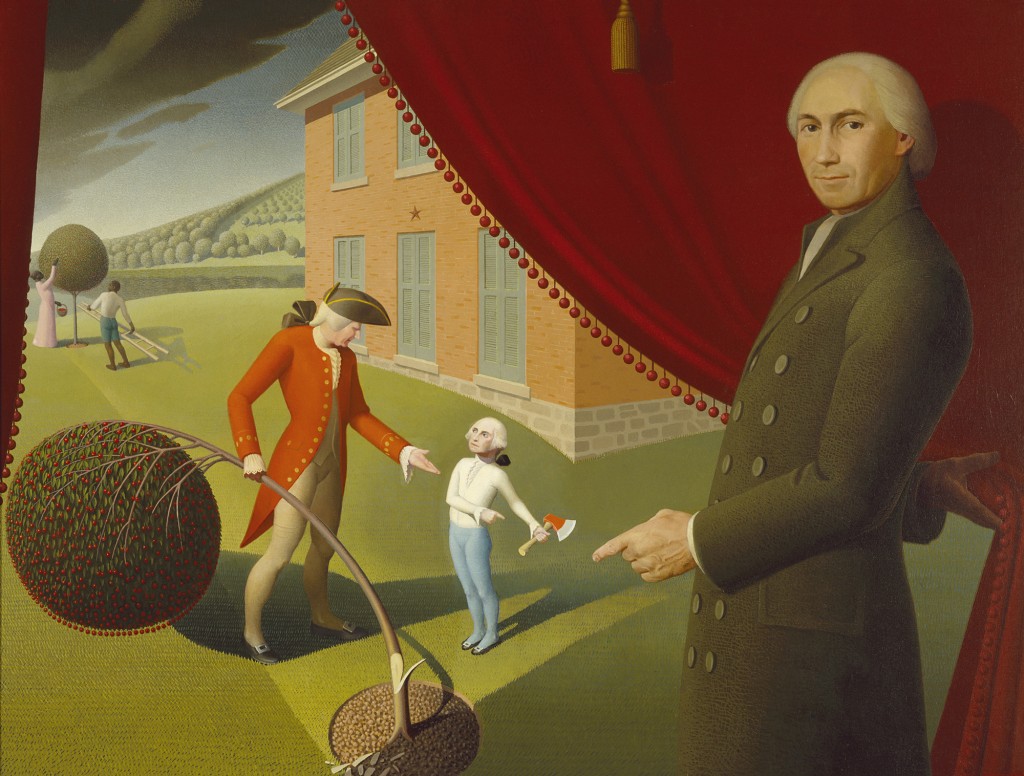Gwens Take: Of truth, myth and cherry trees

I have never been accused of chopping down trees, but like many children, I was taught early on about the value of honesty through an oft-told story about our first president and a cherry tree.
“I cannot tell a lie,” the six-year-old George Washington is said to have told his father in confessing to damaging the tree with a hatchet. “I did cut it with my hatchet.”
It was a straightforward and useful story. It was also not true. It turns out it was invented by an early Washington biographer (not in the first, but the fifth edition of a book originally published in 1800). In 1836, the tale was transformed into a children’s story that has since endured.
Writing for George Washington’s Mount Vernon historical site — which debunked the cherry tree story — George Mason University history student Jay Richardson reasoned: “The longevity of the cherry tree myth says a lot about both American ideals and Washington’s legacy.”
I might add it says a lot about how eager Americans are to embrace the simplistic.
That tendency is unfortunately on display in our elections as well. Often we blame sound bite culture for it. Everything gets boiled down to mere seconds. There is often no time, or inclination, to follow up.
But what about when there is time? When candidates gather on stage for two hours at a clip and still tell cherry tree stories?
Donald Trump is, of course, famous for this. He declares he will mimic President Eisenhower’s deportation policy, while neglecting to mention that this involved stranding people in deserts and separating them from their families.
Ben Carson, in the same debate, said he does not mind being vetted — only being lied about. Just a few days before, he declared flatly that he was being vetted more severely than anyone ever had. One of his own spokesmen walked that back the next day.
In a bid to showcase her foreign policy chops, Carly Fiorina said she had met seriously with Vladimir Putin — not just in a television studio green room. Except it turns out that’s exactly where they met. (Trump, of course, said he and Putin were “stablemates” because they’d appeared on CBS News’ 60 Minutes at the same time. This is true, if sitting for separate interviews in different countries at different times defines quality time.)
Republicans are not the only ones guilty of cherry tree exaggeration. Hillary Clinton implicitly accused Bernie Sanders of sexism, because he’d criticized people who shout about gun control while doing nothing about it.
And Sanders bent himself into something of a pretzel saying one week that questioners should stop questioning Clinton’s emails, and then saying the next week these were perfectly legitimate avenues of inquiry.
And there are even more questions about Clinton — including her claim that she tried to join the Marines in 1975 but was rejected because she was too old.
Some of this is just cagey politics. There were plenty of other examples — from the minimum wage debate to the virtues of military intervention. The fact-checking site PolitiFact is chock full of examples.
This is good news. You don’t have to believe everything a politician tells you, even if you are so inclined. But it’s up to you to seek out the places that will steer you away from the cherry trees.
ncG1vNJzZmivp6x7sa7SZ6arn1%2Bjsri%2Fx6isq2egpLmqwMicqmifp5q7tHnTmqKeZZ%2BberW%2B1K2fZqWpqbVurc2dZJyglae%2FunnTq5yeqw%3D%3D